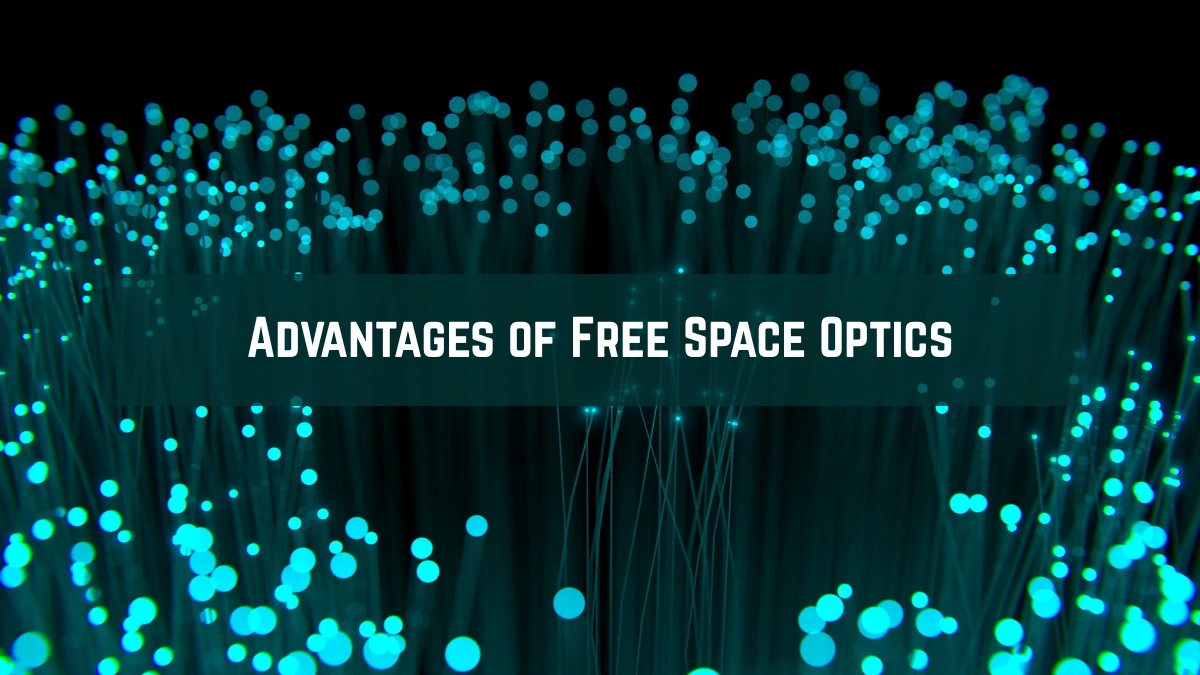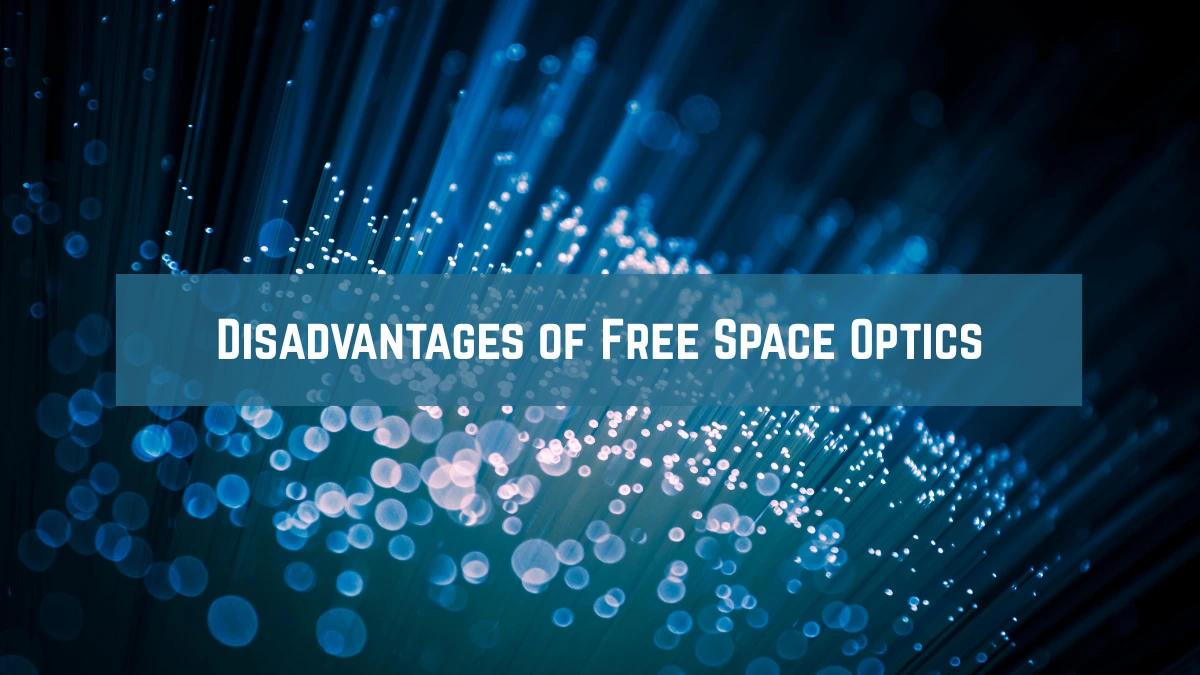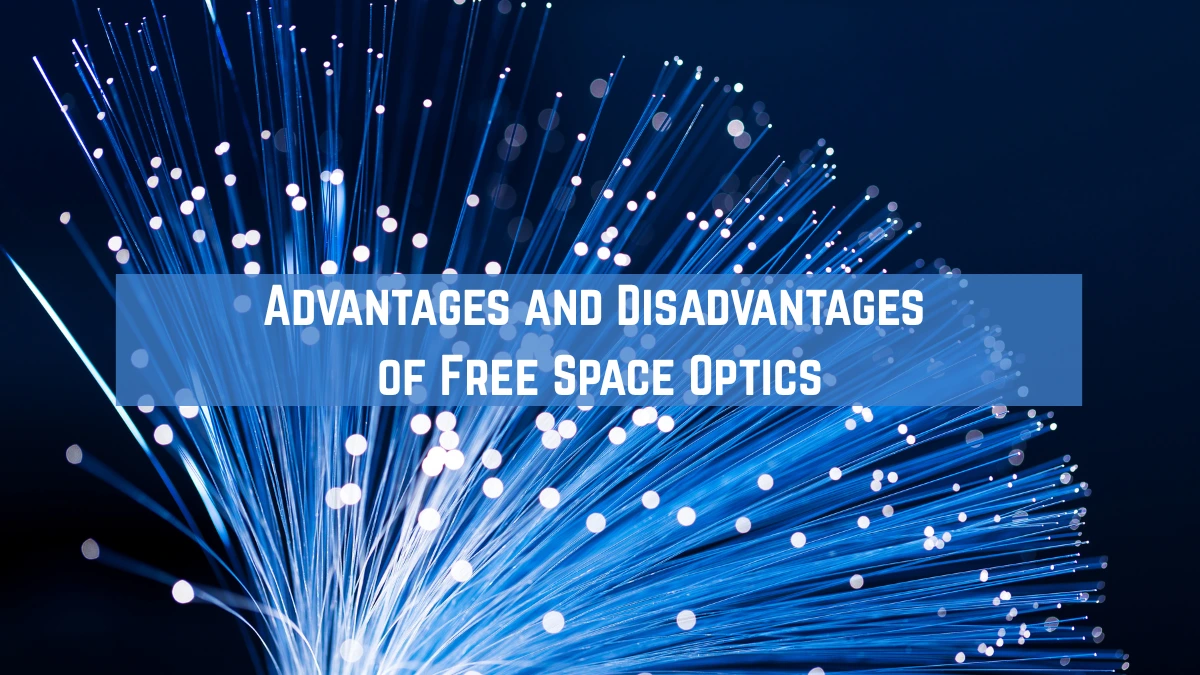Free Space Optics (FSO) provides many benefits, especially the ability to transmit information quickly and wirelessly in various areas. However, the advantages and disadvantages of Free Space Optics cannot be separated, even though we can feel the benefits.
The advantages and disadvantages of Free Space Optics include large bandwidth capacity, high data rates, flexibility, weather sensitivity, and limited distance.
This article will inform you about some of the advantages and disadvantages of Free Space Optics that you can consider.
The Advantages and Disadvantages of Free Space Optics
Like any other technology, Free Space Optics (FSO) has several advantages that can be utilized and disadvantages to consider. The advantages of FSO include bandwidth capacity, high data rates, and flexibility, while the disadvantages include weather sensitivity and limited distance. Here are the advantages and disadvantages of Free Space Optics in detail:
The Advantages of Free Space Optics

Here are some of the advantages of using free space optics:
1. Large bandwidth capacity
One of the main advantages of FSO is its large bandwidth capacity. With this one advantage, FSO is able to meet high data rate needs.
2. High data rate
Not only does it have a large bandwidth, but FSO also has a high data rate. This technology can achieve very high data rates, comparable to optical fiber.
3. Secure and difficult to intercept
If you want secure data transmission, FSO is the right choice. By using light that is hard to detect and can be encrypted, FSO data transmission becomes more secure.
4. Flexible
Another advantage of FSO is its flexibility, this technology can be installed in various locations easily and quickly.
5. Easy installation
Not only flexible, FSO is also relatively easy to install. This device can be installed quickly and relatively easily, even in less than 30 minutes.
The Disadvantages of Free Space Optics

Here are some of the disadvantages of using free space optics:
1. Sensitive to weather
One of the drawbacks of FSO that needs to be considered is its sensitivity to weather. FSO signal quality can be affected by weather conditions such as fog, rain, and haze. When bird conditions are prevailing, the reduced signal quality will be an obstacle.
2. Limited distance
The limited distance range of the FSO is also a drawback of this device. FSOs are usually capable of reaching between 100 meters to 2 kilometers, and their performance and availability decrease as the distance increases.
3. Prone to physical damage
FSO transmission requires an open and obstacle-free path, so physical damage can be prone to this device.
4. Needs maintenance and care
FSO requires regular maintenance and upkeep to keep the signal quality working optimally, especially in harsh weather conditions.
5. Complex optical system
Another disadvantage of FSO is the relatively complex optical system. Not just any technician can perform maintenance and repair of this device, as it requires specialized knowledge.
Those are the advantages and disadvantages of Free Space Optics that you can consider before deciding to use them. When you choose a FSO, you can feel all the advantages of bandwidth capacity, high data rates, and flexibility. However, don’t forget to make a consideration of the disadvantages, which are weather sensitivity and limited distance.
Another thing to note is that Free Space Optics technology must pass the certification test from the Directorate General of Digital Infrastructure (DJID).
With DJID certification, users can feel calm about using Free Space Optics Telecommunication Equipment whose quality and security are guaranteed. For manufacturers or importers of smart CCTV devices, obtaining certification from DJID is a mandatory step before the device can be officially marketed in Indonesia.
To simplify the certification process, you can use our Type Approval Services to assist with this process as a reliable solution. [UN].

